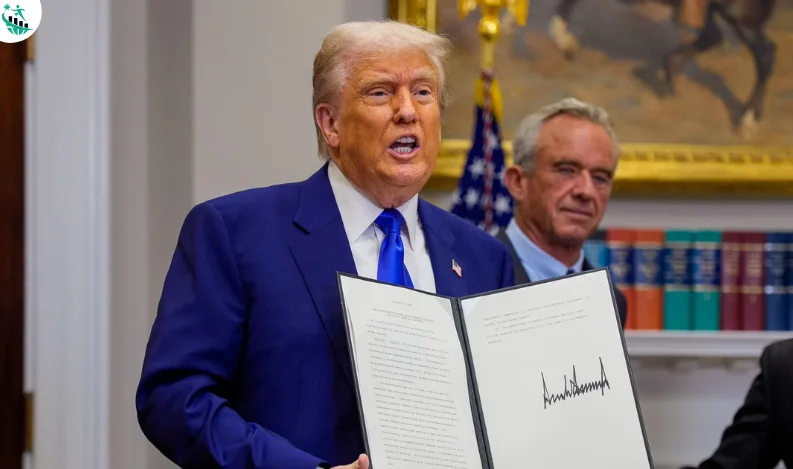
Trump Pressures 17 Drugmakers to Slash U.S. Drug Prices Within 60 Days
Washington – U.S. President Donald Trump on Thursday urged 17 of the world’s largest pharmaceutical companies to take immediate action to reduce drug prices in the United States, giving them a 60-day deadline to commit to cost-cutting measures or face federal intervention.
In a series of formal letters posted on Truth Social, Trump called on companies including Pfizer, Merck, Eli Lilly, Johnson & Johnson, GSK, Novo Nordisk, Regeneron, and Sanofi to adopt pricing models that would align U.S. drug prices with the lower rates charged in other developed nations. The president emphasized that failure to comply would lead to the administration deploying "every tool in our arsenal" to combat what he called “abusive drug pricing practices.”
The move builds on Trump’s earlier executive order signed in May, reviving the controversial “most favored nation” policy. That initiative seeks to cap U.S. drug costs by benchmarking them against significantly lower prices in countries such as Germany, France, and Canada. Trump argued that American consumers have long borne the financial burden of global pharmaceutical innovation, while foreign governments benefit from deeply discounted prices.
During a White House press briefing, Press Secretary Karoline Leavitt held up a copy of Trump’s letter to Eli Lilly’s CEO, showcasing the administration’s direct and personal approach in pushing for reform. Trump has asked companies to publicly commit to his terms by September 29.
According to the president’s outline, drugmakers are expected to provide all current medications to Medicaid patients at their lowest global price, guarantee “most-favored-nation” pricing for all new drugs across Medicare, Medicaid, and commercial payers, and repatriate increased revenues from foreign sales to reduce domestic costs. He also urged companies to explore direct-to-consumer sales models to eliminate intermediaries that he blames for inflating U.S. drug costs.
Stock markets responded swiftly. Shares of pharmaceutical firms tumbled following the announcement. Bristol Myers Squibb and Novo Nordisk dropped nearly 5%, while Merck, GSK, and others recorded declines ranging from 3% to over 8%. Industry analysts noted heightened investor concerns over pricing pressures and regulatory intervention.
The Pharmaceutical Research and Manufacturers of America (PhRMA), the industry’s main lobbying group, criticized the proposal. Senior vice president Alex Schriver warned that importing foreign price controls could “undermine American leadership and hurt patients and workers.” PhRMA instead urged the government to address the influence of pharmacy benefit managers and other intermediaries in the healthcare system.
Several companies issued cautious statements in response. Pfizer called its ongoing discussions with the Trump administration and Congress “productive.” Novartis confirmed it is reviewing the letter, while Novo Nordisk stated it is actively working to improve affordability and access.
The announcement also comes amid reports that AstraZeneca recently proposed voluntary price reductions and is considering selling certain medications directly to patients. Other companies, including Eli Lilly, Pfizer, and Bristol Myers Squibb, have also explored similar models in response to increasing public scrutiny and patient affordability concerns.
Trump’s renewed focus on healthcare costs coincides with other trade-related actions, including potential new tariffs on imported pharmaceuticals. As pressure mounts on the pharmaceutical sector, the coming weeks could see significant shifts in pricing strategies, corporate transparency, and federal oversight.
The administration has indicated that should drugmakers fail to meet the outlined demands by the September deadline, regulatory and legislative tools will be used to ensure compliance. Industry observers now await the companies’ formal responses, as the political and economic stakes in the ongoing U.S. healthcare debate continue to rise.



Recent Comments:
No comments yet.